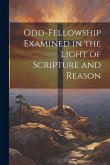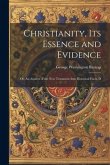First John inseparably links the incarnation of the Son of God and the astonishing proposition that humans can experience a mutual sharing or fellowship with the holy God. Unfortunately, these emphases have been obscured by the prevalent modern approach that finds in the epistle performance metrics that separate genuine from spurious Christians. This man-centered approach has sown legalism in fields of grace, harnessing First John to replace "whosoever believeth in him" (John 3:16) with "whosoever" keeps his commandments, keeps his word, walks as he walked, loves the brethren, and does not love the world. Ironically, while battling a perceived pandemic of spurious believers crouching behind the pews in America's churches, many modern scholars are advocates of spurious assurance by exchanging God's promises for self-assurance. This commentary champions a contextually driven free grace understanding of First John that reclaims its power and relevance for Christians today, not as a polemic against spurious Christians but an encouraging message about the benefits of walking in fellowship with the Father and the Son in the last hour. It also addresses the unique contributions Second and Third John make to the New Testament cannon, which among other things highlight what a healthy church looks like and the importance of an individual's good reputation among other believers.
Hinweis: Dieser Artikel kann nur an eine deutsche Lieferadresse ausgeliefert werden.
Hinweis: Dieser Artikel kann nur an eine deutsche Lieferadresse ausgeliefert werden.





![Fabrications and Facts, or, The Trials and Troubles of a Clergyman in the Diocese of Toronto [microform]: a Romance in Real Life, in Which the Christi Fabrications and Facts, or, The Trials and Troubles of a Clergyman in the Diocese of Toronto [microform]: a Romance in Real Life, in Which the Christi](https://bilder.buecher.de/produkte/66/66201/66201062m.jpg)

![A Plain Statement of Facts, Connected With the Union and Separation of the British and Canadian Conferences [microform] A Plain Statement of Facts, Connected With the Union and Separation of the British and Canadian Conferences [microform]](https://bilder.buecher.de/produkte/66/66158/66158258m.jpg)
